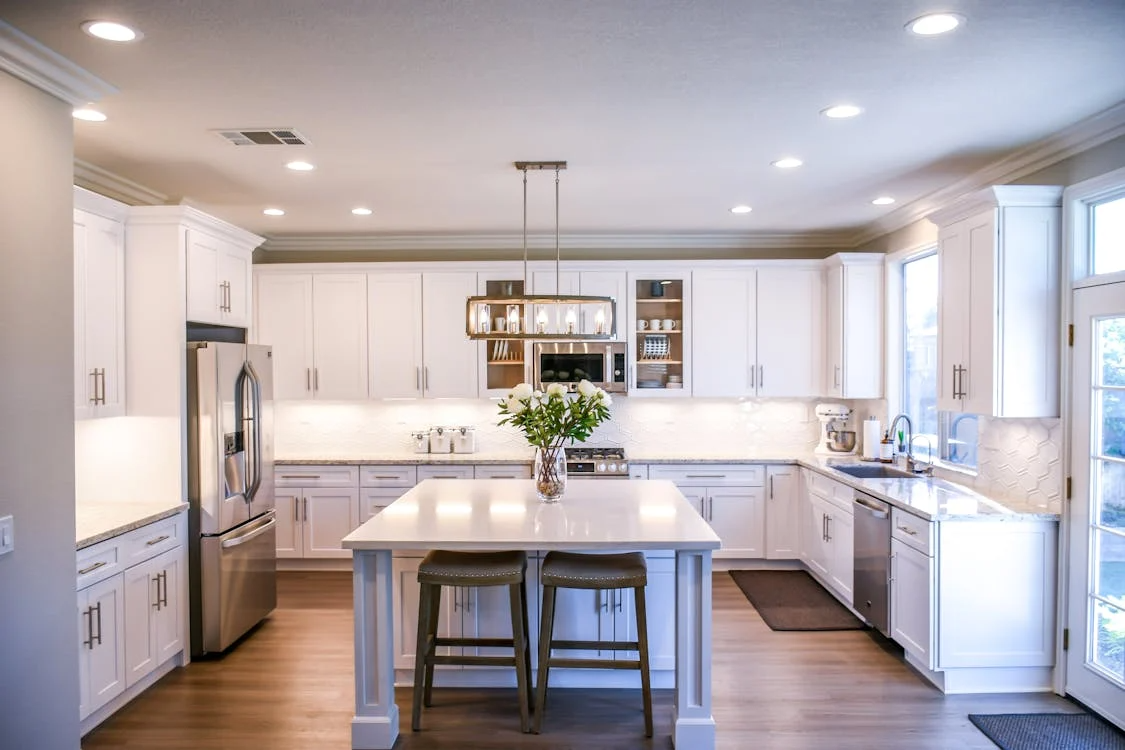
After decades of life well-lived, our homes can become a museum of memories, with items tucked away in drawers and boxes that no longer serve us.
Some possessions are comforting, but others quietly take up space, energy, and even our peace of mind.
What if clearing just a few small items could make your home feel lighter and safer almost immediately?
Many older Australians choose to age in place, preferring to remain in familiar surroundings rather than move to a care facility.
Yet clutter can make that goal harder than it needs to be.
With over 4.2 million Australians aged 65 and over, and one in four living alone, creating a manageable, safe home has never been more essential.
Professional organiser Rachel Burditt highlighted 10 items that are surprisingly easy to let go of—small, low-emotion possessions that can kickstart a decluttering journey.
'If you can get rid of the small things, the larger things will follow.'
Small steps, big difference
Decluttering didn’t have to be overwhelming, especially for seniors.
Breaking the task into bite-sized steps meant real progress could be made without feeling defeated.
Even removing minor items could build confidence and momentum for tackling more meaningful possessions.
The ten items you won't miss
1. Old chargers and cables: Drawers often overflow with tangled cords for devices no longer used.
Those old Nokia chargers, defunct laptop adapters, and mysterious USB cables served no purpose except taking up space.
Australia had excellent e-waste recycling programs—check your local council for drop-off locations.
2. Excess water bottles: While staying hydrated was vital, most households didn’t need a cabinet full of bottles.
Keep two or three favourites and recycle or donate the rest.
3. Broken umbrellas: Bent ribs, torn fabric, or jammed mechanisms meant an umbrella was more hazard than help.
A reliable umbrella was essential for safety—broken ones could trip you up.
4. Stretched hair ties and accessories: These little items accumulated in drawers and bathroom cabinets.
Once they lost elasticity or became covered in hair, they were better off gone.
Did you know Australia offers professional help?
Several Australian organisations provided decluttering services specifically for seniors, including integratedliving's 'Crowded House' program and specialist companies like Decluttering Solutions.
Many of these services could be funded through Home Care Packages (HCP) or the Commonwealth Home Support Programme (CHSP).
5. Empty candle jars: Unless planning a craft project, empty candle containers just collected dust.
Clean glass jars could be recycled, and some could be repurposed as small plant pots if they were actually used.
6. Single earrings: Holding onto the lone survivor of a broken pair rarely worked out.
Craft groups often welcomed single earrings, so donating rather than discarding was a good option.
7. Faded receipts: Old receipts added clutter unless needed for tax purposes.
Photograph important receipts and store them digitally before recycling the paper.
8. Ill-fitting jeans: Jeans that cut in or sagged around the waist affected both comfort and confidence.
Clothes that no longer fit could be sold, donated, or recycled.
9. Socks with holes: Unless repurposed as cleaning rags, socks with holes simply took up space.
Many Australian cities had fabric recycling programs for unwanted textiles.
10. Dried-out pens and markers: Testing pens that didn’t work only added to the mess.
Office supply stores often offered pen recycling programs, and some councils accepted them in e-waste collections.
The emotional side of letting go
Decluttering could be emotionally challenging, particularly for seniors attached to possessions.
Integratedliving noted that disposal could always be declined, and professional programs approached the process with compassion and understanding.
Why this matters for safety and wellbeing
A tidy home reduced trip and fall hazards and made everyday movement easier.
It also lowered cleaning demands, increased mental clarity, and prepared the home for any future downsizing.
Getting started today
Pick one category from the list and spend 15 minutes gathering those items.
Daily, small tasks were far more sustainable than trying to overhaul the entire home in one weekend.
Online charts and guides could help structure these efforts into achievable steps.
Decluttering was a journey—professional help was available, and progress was made one small win at a time.
What This Means For You
Decluttering small, low-emotion items can help build confidence to tackle larger, more meaningful possessions, making the process feel manageable rather than overwhelming.
Removing old, broken, or excess items not only frees up space but also improves safety and mobility around the home, which is especially important for anyone wanting to move around independently.
Using professional services and recycling programs in Australia can make decluttering easier and more sustainable, providing support and guidance when needed.
Taking daily, manageable decluttering tasks helps prevent feelings of overwhelm, allowing steady progress and creating a more comfortable, organised living space that supports both physical and mental wellbeing.
For readers, this means that starting with small steps today can make a real difference in how your home feels and functions, allowing you to enjoy a safer, lighter, and more peaceful environment every day.
If you’re feeling inspired to start decluttering but aren’t sure where to begin, there are simple methods that can make the process feel manageable and even fun.
One approach breaks the task into clear, achievable steps that help you steadily clear out items without feeling overwhelmed.
For a practical guide to implementing this method at home, check out a useful real-life example that shows how small daily actions can lead to big results.
Read more: Simplify your decluttering process with the 12-12-12 method
Older Australians, Housing and living arrangements—Australian Institute of Health and Welfare — Discusses housing preferences and living arrangements, including the desire to age in place.
[URL='https://www.aihw.gov.au/repor...contents/housing-and-living-arrangements[/URL]
Older Australians, Demographic profile—Australian Institute of Health and Welfare — Provides demographic statistics, noting over 4.2 million Australians are aged 65 and over.
[URL='https://www.aihw.gov.au/repor...australians/contents/demographic-profile[/URL]
Older Australians, Summary—Australian Institute of Health and Welfare — Summarises key facts about older Australians, including population figures.
[URL='https://www.aihw.gov.au/repor...eople/older-australians/contents/summary[/URL]
Older Australians, Housing and living arrangements—Australian Institute of Health and Welfare — Highlights that one in four older people live alone.
[URL='https://www.aihw.gov.au/repor...contents/housing-and-living-arrangements[/URL]
Decluttering Tips For Over 50s | Apia — Offers guidance on breaking down decluttering tasks into manageable chunks to reduce overwhelm.
[URL='https://www.apia.com.au/apia-...-life/health-wellbeing/decluttering.html[/URL]
Crowded House—Decluttering Service for Seniors | integratedliving Australia — Explains the importance of keeping homes free from clutter to avoid trip and fall hazards.
[URL='https://integratedliving.org.....au/services/help-at-home/crowded-house/[/URL]
Crowded House—Decluttering Service for Seniors | integratedliving Australia — Notes that participants can refuse disposal of items if they feel distressed about letting go.
[URL='https://integratedliving.org.....au/services/help-at-home/crowded-house/[/URL]
Decluttering Tips For Over 50s | Apia — Highlights the benefits of decluttering, especially for those with more accumulated belongings.
[URL='https://www.apia.com.au/apia-...-life/health-wellbeing/decluttering.html[/URL]
Decluttering Tips For Over 50s | Apia — Suggests using online charts to break down decluttering into daily manageable tasks.
[URL='https://www.apia.com.au/apia-...-life/health-wellbeing/decluttering.html[/URL]
What’s the first category you’ll tackle in your own home, and which small win surprised you the most?







